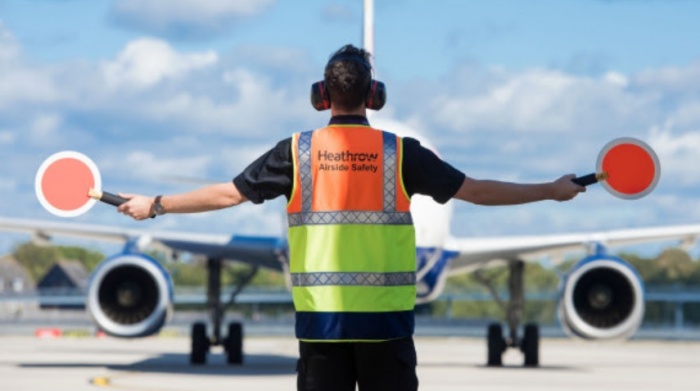
UK airline insolvency review recommends new levy on passengers
The department for transport has recommended a levy of 50 pence per person on all flights to insure against the future collapse of UK-based airlines.
The news comes as the government body publishes the final report from the independent airline insolvency review, which was chaired by Peter Bucks.
Transport secretary Chris Grayling commissioned the review following the collapse of Monarch Airlines in October 2017.
The failure saw 85,000 passengers repatriated by the Civil Aviation Authority; the largest such peacetime operation seen in the UK.
The past decade has seen two of the largest airline failures in UK history, with the collapse of XL Airways and Monarch.
In both situations, the government of the day took a decision to ask the Civil Aviation Authority to intervene to assist the repatriation of passengers.
The review also recommends reforms to the UK’s airline insolvency regimes so an airline’s own aircraft can be used to repatriate its passengers should it fail.
There are also calls for an improved awareness of safeguards which protect customers with future bookings, when airlines collapse.
ADVERTISEMENT
Grayling said: “I welcome the report and I am grateful for the work performed by Peter and his team.
“We will now consider the range of options put forward by the review, and will work to swiftly introduce the reforms needed to secure the right balance between strong consumer protection and the interests of taxpayers.”
See the full report here.
Bucks added: “We know passengers expect to be protected from being stranded overseas if their airline should collapse, but in practice, each year many people fly without any such protection.
“Although airline insolvencies are relatively rare, as we have seen in recent months they do happen – and at times have required government to step in to repatriate passengers at great cost to the taxpayer.
“Our recommendations to government set out a series of practical suggestions to ensure that passengers are protected, particularly in the event of a large-scale collapse like Monarch.
“Ensuring all passengers can get home requires organisation, funding and in many cases more than simply rebooking onto other flights.
“I hope that the work of the review will – while there is no silver bullet - act as a catalyst to ensure that both passengers and taxpayers are appropriately safeguarded when airlines collapse in the future.”
In response to the review, the Board of Airline Representatives in the UK said it maintained concerns about the assessment of risk and proportionality of potential costs to consumers from what has been a complex process.
Dale Keller, chief executive of BAR UK, said: “We believe that the risk assessments of a major airline insolvency, of the scale likely to trigger government intervention on assisting passengers home to the UK, remain overstated within the report.
“The European Commission estimates that between 2011 and 2020, only 0.07 per cent of all passengers across Europe could be affected by airline bankruptcy, and of them, only 12 per cent would require organised assistance in getting home.”
The recent failure of Wow Air required no financial intervention from the CAA as 13 airlines offered rescue fares to Wow passengers under an industry voluntary agreement, Keller pointed out.
ABTA took a rosier view.
John de Vial, director of financial protection, said: “It is good to see that the Review has recognised that there is a gap in consumer protection when an airline goes out of business.
“ABTA has highlighted for quite some time that the current system is confusing and inconsistent for both customers and travel businesses.
“The review is important in terms of examining the options for addressing this gap and ABTA will be looking at the recommendations closely in order to assess how they could work in practice and discussing these with our members.”

